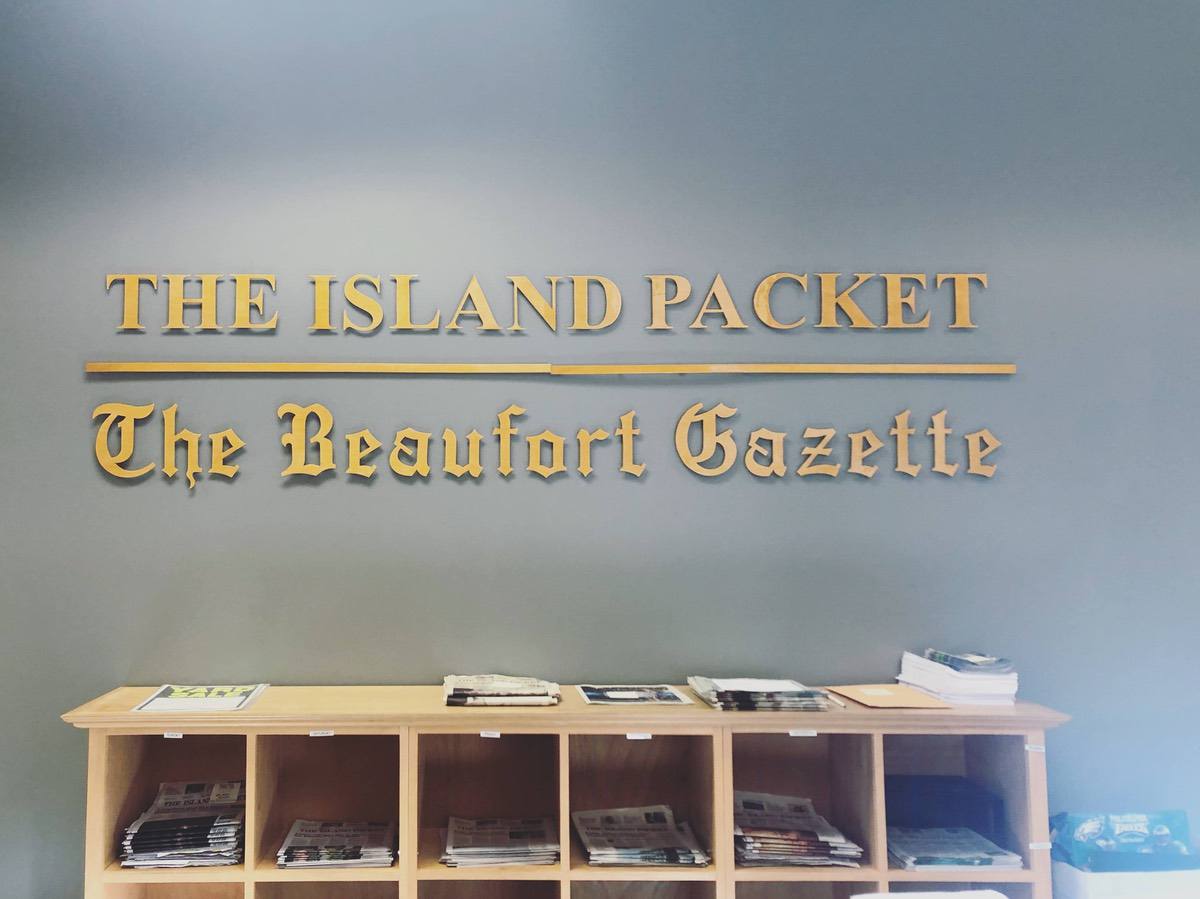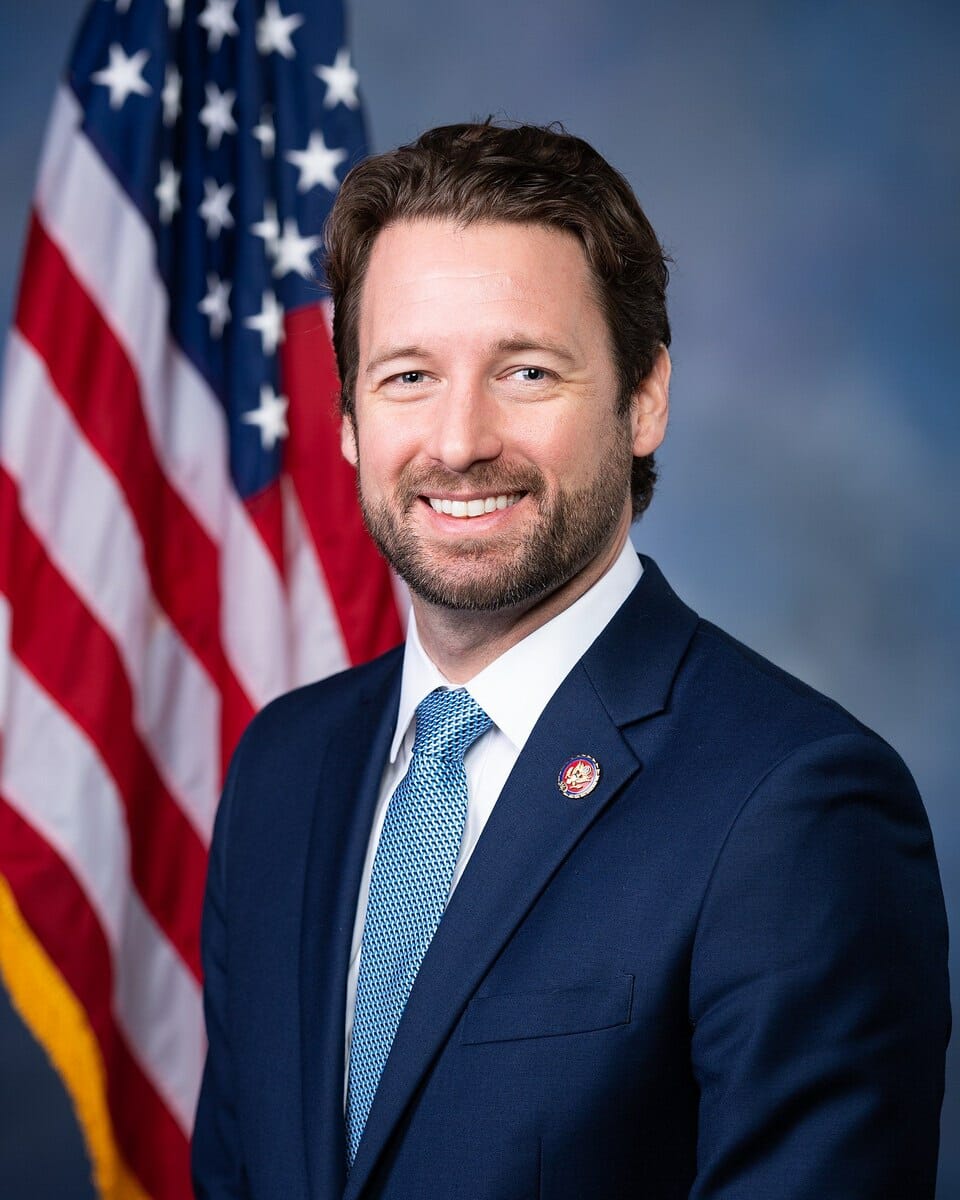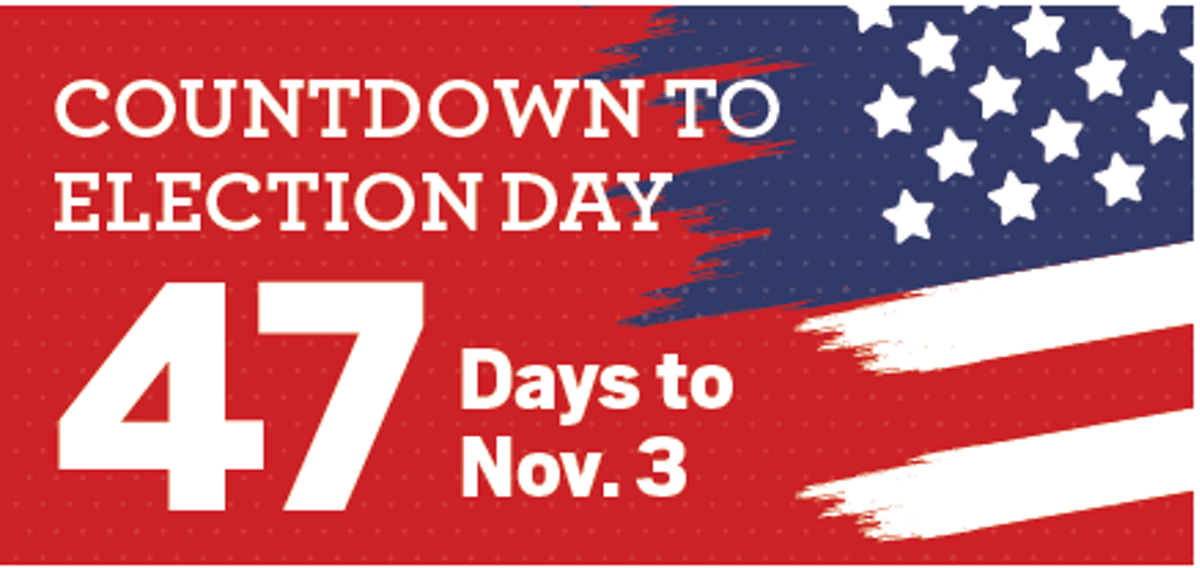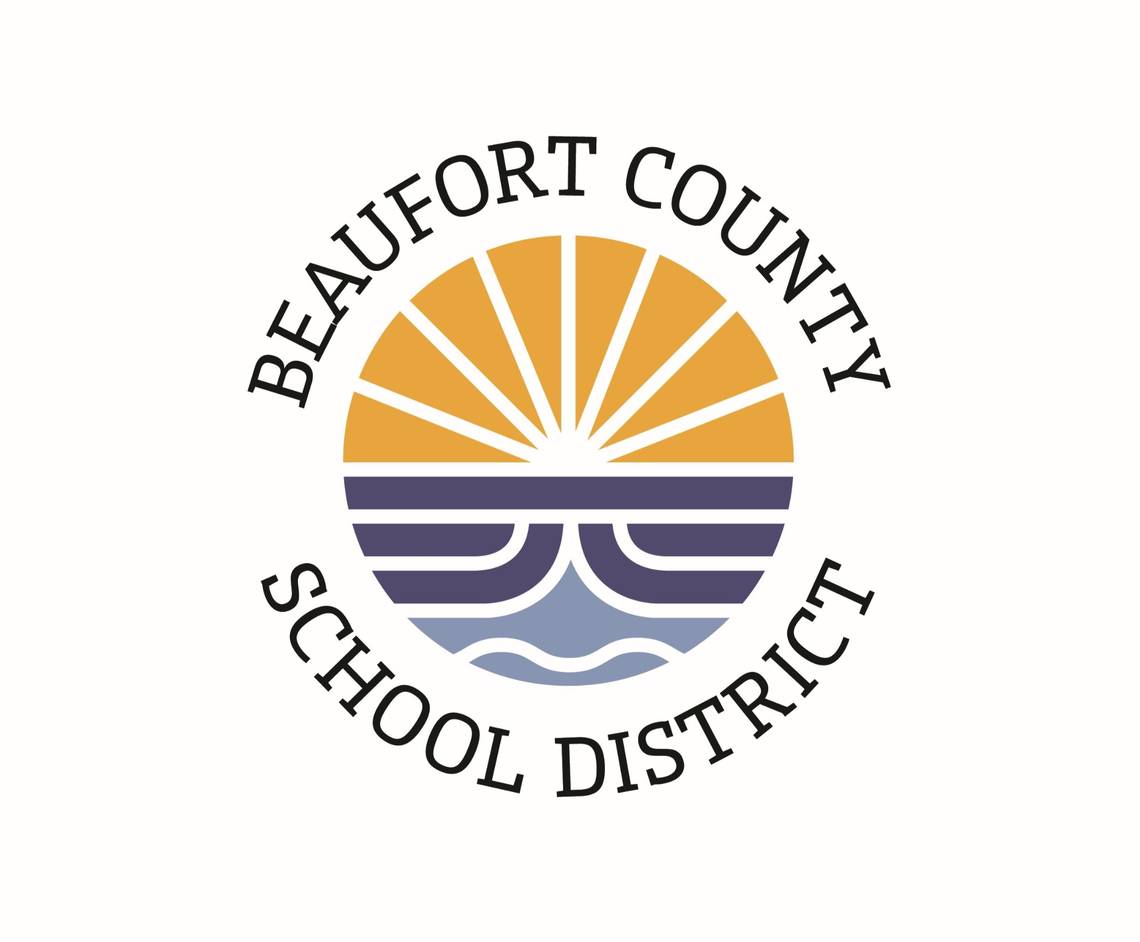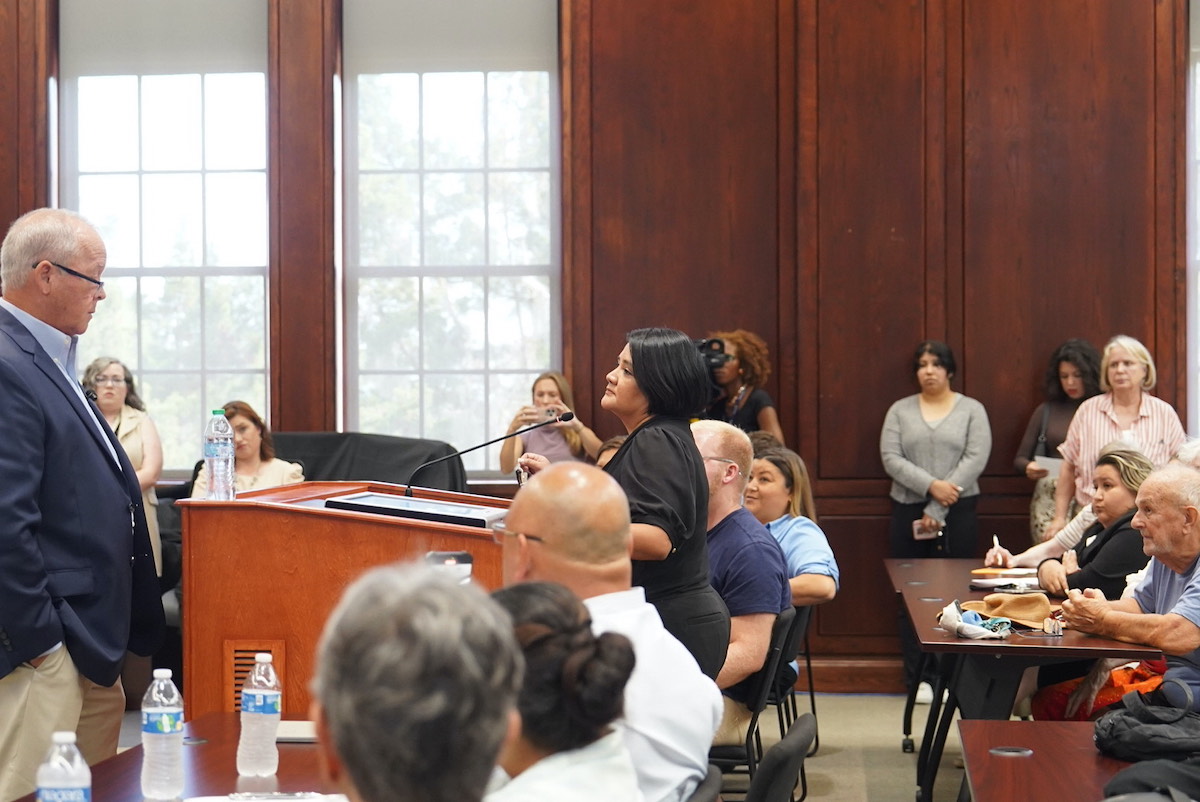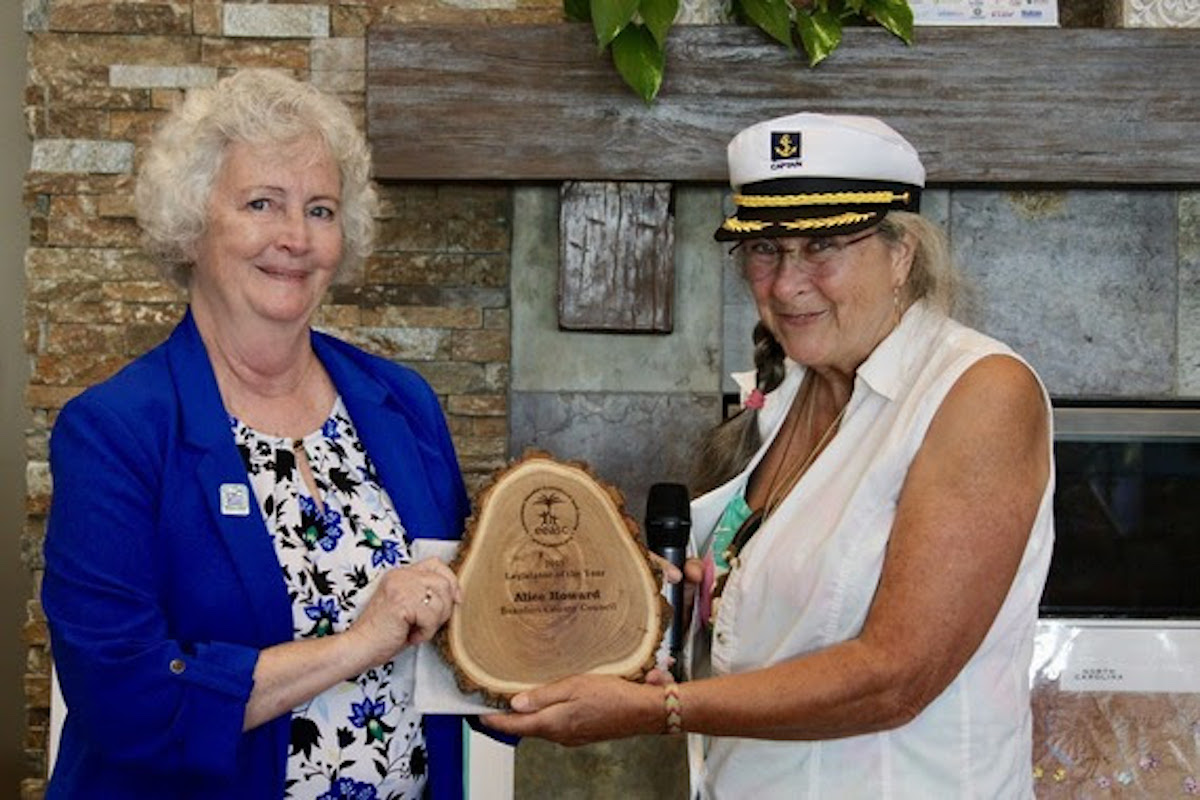The Packet/Gazette Guild becomes the state’s first active newspaper guild
By Mike McCombs
As reporter Katherine Kokal put it, it was an awkward two days.
Months of conversation and weeks of planning culminated around 8:30 a.m. on Wednesday, Sept. 9, when the journalists of The Island Packet and The Beaufort Gazette (IP/BG ) newsroom announced in a press release that they had taken the first steps toward unionizing.
More that 80 percent of eligible reporters, photographers and news producers in the IP/BG newsroom signed cards authorizing representation by the Washington-Baltimore News Guild, Local 32025 of the Communications Workers of America (CWA).
The employees had requested voluntary recognition of The Packet/Gazette Guild from management. Now they were waiting.
Kokal said that through Thursday evening, the newsroom journalists had heard nothing but “radio silence” from their bosses.
At 6 p.m., the newsroom gathered for a previously scheduled virtual meeting, where the saw IP/BG Executive Editor Brian Tolley, Managing Editor Candy Hatcher and Linda Brooks, a human resources specialist who works in labor relations.
“I think a lot of us were expecting a chat about the union or the usual ‘our doors are always open’ talk where they try and dissuade you from starting a union,” Kokal said. “Instead, really the first thing that (Tolley) said was ‘We wanted to let you all know we’re going to recognize your union voluntarily.’ … It was wonderful. I did not expect to start a union and be recognized one day later.”
A little more than an hour after the meeting, Tolley sent out a thread of six tweets announcing what the IP/BG newsroom journalists had already learned.
Tolley’s statement: “We will move forward together with our newsroom colleagues at The Island Packet and Beaufort Gazette to voluntarily recognize the union they have proposed. This pathway allows us to accelerate the process of starting negotiations. We commend our reporters for their passion and commitment to the mission of local journalism and are grateful for their continued efforts to keep our community informed under very challenging circumstances. At this unprecedented time, when our communities are relying on us for vital news and information on critical challenges – the pandemic, the return to school, important conversations on racial equity and justice and a presidential election – we believe that voluntary recognition ensures that we can continue to deliver on our mission of producing strong, independent local journalism that informs our communities and helps them thrive. We will immediately form our bargaining team and look forward to working collaboratively with @PacketGuild to advance this process and ensure a strong future for local journalism in the Lowcountry.”
How did they get here?
The Island Packet and Beaufort Gazette newspapers, which share staff and essentially function as one newspaper, are currently owned by McClatchy. It has finalized its sale to Chatham Asset Management, a New Jersey-based hedge fund, for $32 million.
The sale came roughly six months after McClatchy filed for Chapter 11 bankruptcy and follows a decade of staff reductions and losses.
In general, newsroom employment at newspapers in the U.S. dropped by 51 percent between 2008 and 2019, according to Pew Research. Staffing at the Island Packet and Beaufort Gazette has mirrored that, dropping from more than 40 reporters to just 11 full-time reporters and visual journalists.
As McClatchy was struggling, some in the Packet and Gazette newsroom started to take notice of other newsrooms around the country, large and small, that were organizing. And handful of people began to have conversations, quietly, about whether this was an option for them.
Kokal said there was not really a leader, just a groundswell of conversations. People expressed interest and they began to realize there might be support for such an effort here.
“When the schools shut down and we moved to work from home, I think we saw the need to work collectively and have a say in these sorts of decisions,” Kokal said. “The pandemic presented a lot of work for local journalists.”
Rachel Jones, the education reporter for the IP/BG said there were two things that altered the tone of the small, mostly private conversations in the newsroom.
“Two of the biggest pushes for us were first learning that the Miami Herald, our colleagues from Florida, had unionized. It was a (big) deal to see a paper that big on the east coast organizing as a part of McClatchy,” Jones said. “And I think another part of it was our worries about our new ownership under Chatham. McClatchy has been under family ownership for so many years and was one of the few major chains that hadn’t declared bankruptcy. But then that changed, and I think that really changed the conversations in the newsroom about what organizing meant for us.”
Gaining momentum
The Island Packet and Beaufort Gazette journalists, having established The Packet/Gazette Guild, are the first in either Carolina to form a guild. Ever.
The conception among many was that because South Carolina is a “Right to Work” state, a union simply wasn’t an option.
“I think a lot of the conversations we had were just dispelling misconceptions about what it meant to live in a ‘Right to Work’ state. It was surprising when we found that a lot of us simply didn’t understand,” Kokal said. “A lot of us thought that you weren’t allowed to unionize in South Carolina, and that, on it’s face, is just not true. It simply means that someone can join a union shop, get the benefits of that union, and not be forced to pay union dues.”
Right to Work, Kokal said, says nothing about your federal right to organize.
Jones said that after laying the framework earlier in the year, conversations began to get more serious about a month and a half ago.
“We got some updates on the sale to Chatham and that really made us thing about going ahead and going public and setting a timeline for that.”
There was not a strong campaign by anyone in the newsroom against organizing.
Jones said the goal simply became to educate co-workers enough until they felt comfortable signing a union card with the National Labor Relations Board. Eventually, nine of the 11 journalists in the room were on board.
This was an important number. If management failed to voluntarily recognize the guild, it would force an election. The newsroom group knew they would likely have no trouble getting the majority votes needed to move forward.
McClatchy could have made the case to disallow some members, but that was not likely.
“Basically, they determine who is eligible to vote in that election,” Jones said. “Once they decide the size of the unit, we’d have that election, and all we need is a simple majority.”
It never came to that.
What do they want?
So now that the guild is active, both sides will establish negotiating teams and eventually determine what will be on the table when the two sides sit down and bargain.
The Packet/Gazette Guild essentially has three basic priorities they want to address.
1. Pay equity across the newsroom and benefits that will help recruit and keep talented journalists.
“McClatchy earlier this year announced a freeze on merit based pay increases,” Jones said, “and that is something, with the changing cost of living here, that reporters across the country really value and need to get by. We hope to negotiate a contract that has a sliding scale and a step scale for compensation.”
2. A newsroom that is ethnicly and linguisticly diverse.
“This county is not a monolith, and we need reporters who represent our community,” Jones said.
3. To fight downsizing, cuts and adverse changes in work conditions.
“We can’t stop layoffs, but if we have a union and a contract, we can negotiate better severence payouts. We can negotiate times so people don’t find out that they’re laid off on the day their being laid off,” Jones said. “Getting an email at 8 a.m. that tells you you’re not going to have a job tomorrow, I mean that’s impossible. I would argue it’s cruel.”
Jones said any appreciable changes to our working conditions should have to be negotiated with the union instead of just enforced.
“Things like changing somebody’s beat suddenly, changing somebody’s hours, changing the days that you work,” she said. “Things like that are very important to us.”
In its news release announcing the newsroom had organized, the IP/BG journalists expressed regret at the Beaufort Gazette’s diminished presence as a result of cost-cutting and office closures in Beaufort.
Combining staff and moving operations to Bluffton alienated much of the Beaufort community.
They also lamented the loss of a “national award-winning sports department that was slowly phased out as corporate directives prioritized clicks over local sports coverage.”
In pointing out these decisions, the journalists make the argument that if they had more of a role in decision making, the path may have been different.
A better newsroom?
So far, members of the guild say the reaction from sources and people they have encountered publicly and online has been positive.
“The support has been great because really I think people realize that through this process we will have a stronger newspaper,” Jones said. “We love this institution and we have absolutely no qualms with our local editors. They are the heart and soul of the room. Really, this is to preserve the future of our newspaper and continuing to bring the readers the news that they deserve.”
Jones pointed out that, like Kokal and herself, the Lowcountry is where a lot of journalists get their start. Many work here right out of college but can’t afford to stay. They love being here, but eventually have to go on to work elsewhere.
“I have seen a lot of smart journalists come and go during my 10 years in the Lowcountry,” said Stephen Fastenau, a senior reporter covering Beaufort, “and I hope this effort builds an environment that encourages more of them to stay and become part of the communities they work so hard to cover.”
There’s a lot of uncharted territory ahead, though.
“I think it’s fair to say that we are going to learn a lot in the next month, … in the next few months,” Kokal said.
Mike McCombs is the editor of The Island News and can be reached at TheIslandNews@gmail.com. He was employed as a sports reporter/page designer at the Beaufort Gazette from 1997 to 1998 and then again as sports editor of The Island Packet and The Beaufort Gazette from 2012 to 2016.


